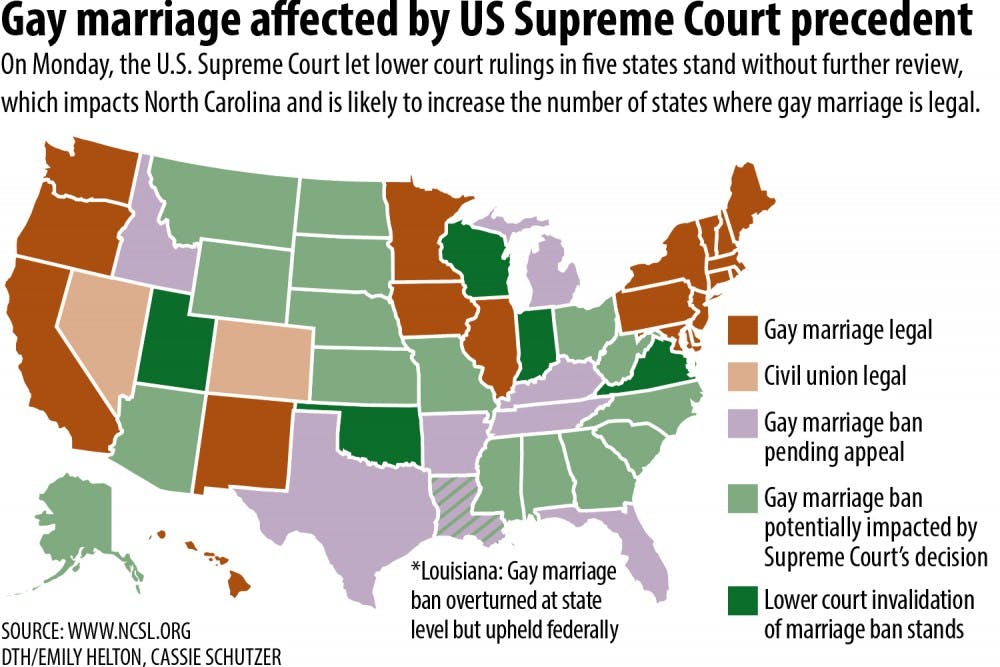The move specifically affected Indiana, Utah, Oklahoma, Virginia and Wisconsin. But since the 4th U.S. Circuit Court of Appeals in July ruled Virginia’s ban unconstitutional — and North Carolina falls under the 4th Circuit’s jurisdiction — the decision is legally binding as a precedent in the state’s federal courts.
Mike Meno, spokesman for the American Civil Liberties Union of North Carolina, said there are currently 19 states with the freedom to marry — but after the Court’s decision, that number is likely to jump to 30 states.
“This is a very big day, but for a lot of families, it can’t come soon enough,” he said. “Couples being able to have the freedom to marry in their own state would be nothing short of life-changing.”
Marriage for gay couples, Meno said, would allow them to raise a family as they wish and to have full legal custody over their children, among other benefits.
Chris Sgro, executive director of gay rights group Equality N.C., said there is no longer a question of whether North Carolina will have marriage equality, because the state’s ban — known as Amendment One — stands on shaky legal ground.
“It will not be an extended timeline, and we’re certainly not talking a year,” he said. “It could be a matter of days.”




